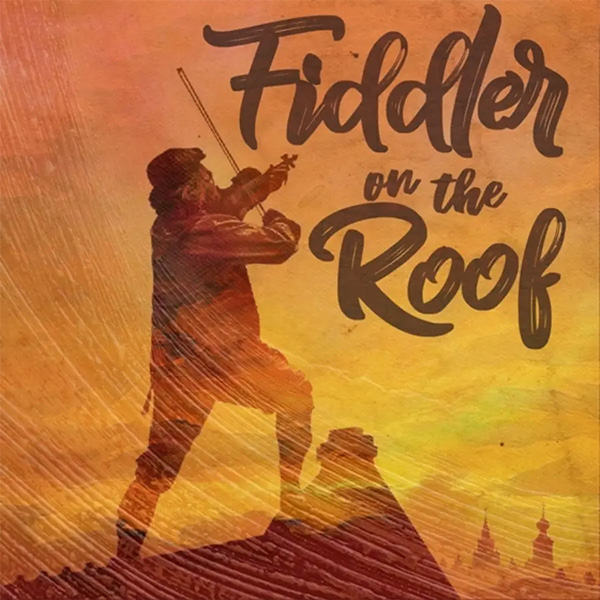CEDAR CITY — Fiddler on the Roof, with music by Jerry Bock, lyrics by Sheldon Harnick, and a book by Joseph Stein, has been a musical theatre staple since 1964. As part of the Simon Fest in Cedar City, director Rebekah Bugg has yet again brought the fiddler to life. This classic story is a small glimpse into Jewish life in 1905 Russia, its traditions, the changing times, and challenges from outside threats and prejudices.
For people who have been going to the Simon Fest for all 22 years that it has been operating in Cedar City, or for people who are familiar with Southern Utah University or local theatre culture, it could be very fun for them to see theatre professor and founder of the Simon Fest Richard Bugg play Tevye, the main character of Fiddler on the Roof. And certainly, Bugg was quite up to the task, with his strong voice booming during the popular “If I were a Rich Man”, and his jovial personality hitting all the jokes of Tevye just right. He also had a great connection with his daughters in the show, which helped with the major plot points of traditions and difficulties of breaking traditions. Tevye also had a good connection with his wife, Golde, played quite well by Shellee Younkin. Younkin had a strong take on Golde, portraying her as a no nonsense woman who just had to get all the work done. This made the second act duet, “Do You Love Me?” much more effective because of it’s surprising reflection. It was quite believable that Younkin would have been too busy working on taking care of a family to have even considered love.
With a show as popular and well known as Fiddler, it can be hard to keep it fresh and connected, even though the messages of the plot seem even more important today than when it debuted in 1964. One of the challenges I came across with the Simon Fest production was a bit of discrepancies with the traditions themselves. Having been in a production myself and remembering the cultural consultation that was given, the differences with hair covering lengths with some of the women, type of facial hair with some of the men, and other minimal costuming choices by costume designer Jaimee Markham left me a little more nitpicky than I would be in a show that is not based so much on religious traditions. Additionally, when one has such familiarity with a show, it becomes pretty easy to notice things like fumbled lyrics and scenes.
On the flip side, Maximilian Gilyard as Motel the tailor was an absolute delight. His joy that seeped through the number “Miracle of Miracles” was infectious, which is exactly what that number is meant to reflect. When he says the line “even a poor tailor is entitled to some happiness” it resonated in a deep way.
The very best part of this show was the live fiddler played by Lindsay Szczesny. Her skills were absolutely breathtaking. In her bio she lists that she has been listening to the Fiddler music since she was a teenager. She has really done the show justice and brought the joy of these fantastic melodies to new live audiences.
The tradition of ballet sequences in golden age musicals has not always aged well, but the direction of the ballet in this production when Tevye is trying to decide how to handle the changing traditions of his daughters, especially the youngest, Chava, played by Marquessa Farnsworth, was handled in a deep and beautiful fashion by director Bugg and choreographer Shellee Younkin. Watching Farnsworth communicate through dance the difficulties of being rejected by family because of her love is something that is transcendent of the time then to now, and it was a beautiful theatrical moment. All of the interactions between Farnsworth and Fyedka, played by Alek Jordan, were believable not only in that they were building a budding romance, but that they also understood the dangerousness within not only a romance but even a friendship.
One of the most difficult things about taking on a classic like Fiddler is understanding the deep and somewhat dark message behind all the common, popular music. Sometimes we are so familiar with a show that we forget the difficult message delivered. The families forced from their homes were just the beginning of one of the worst times in history, and the reason for telling the story is that we should never get to a place where we reject others just because they believe differently than we do.
[box] Fiddler on the Roof plays at various times Wednesdays-Saturdays through August 3rd as part of the SimonFest in Cedar City at the Heritage Theatre (105 N 100 E Cedar City, Utah, 84720). Tickets are $18-30. For more information https://simonfest.org/ [/box]
